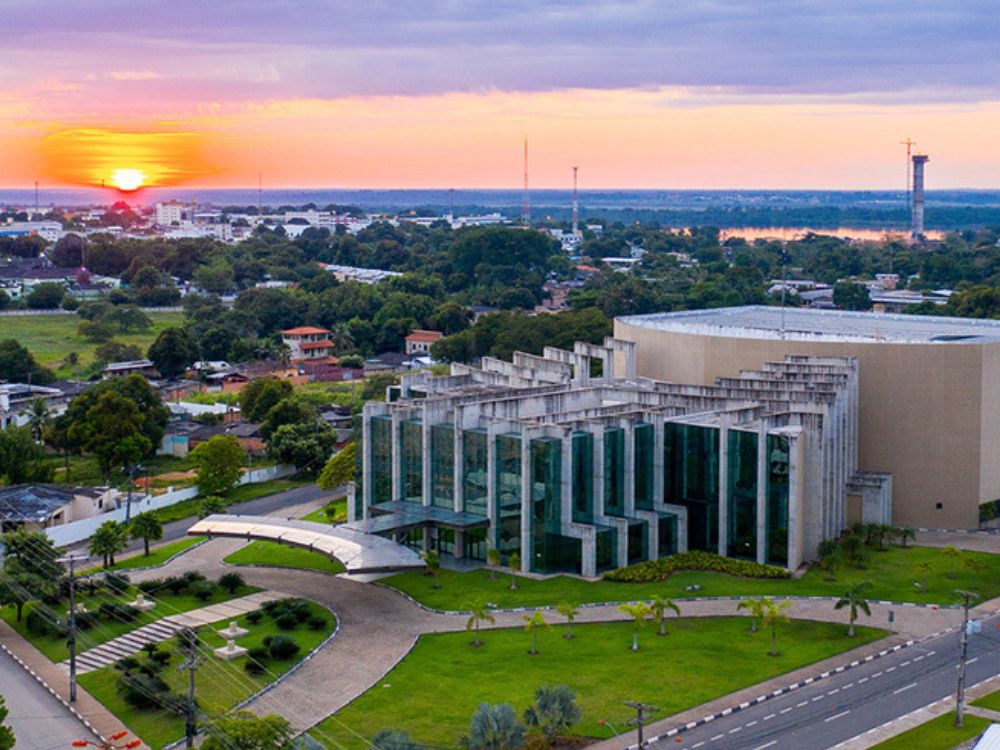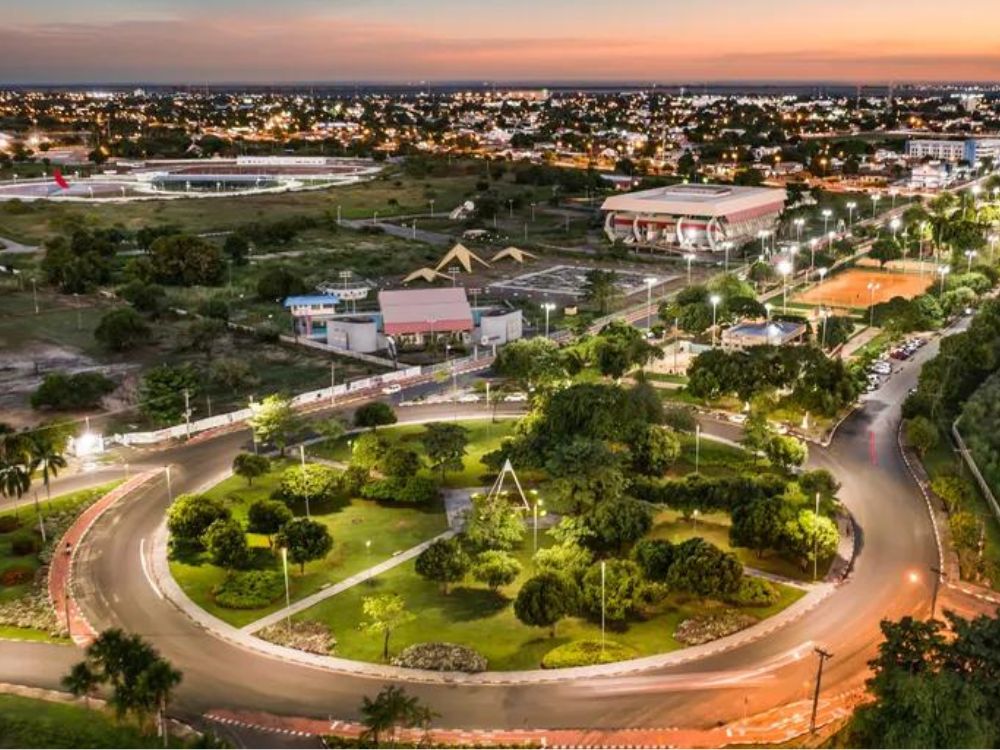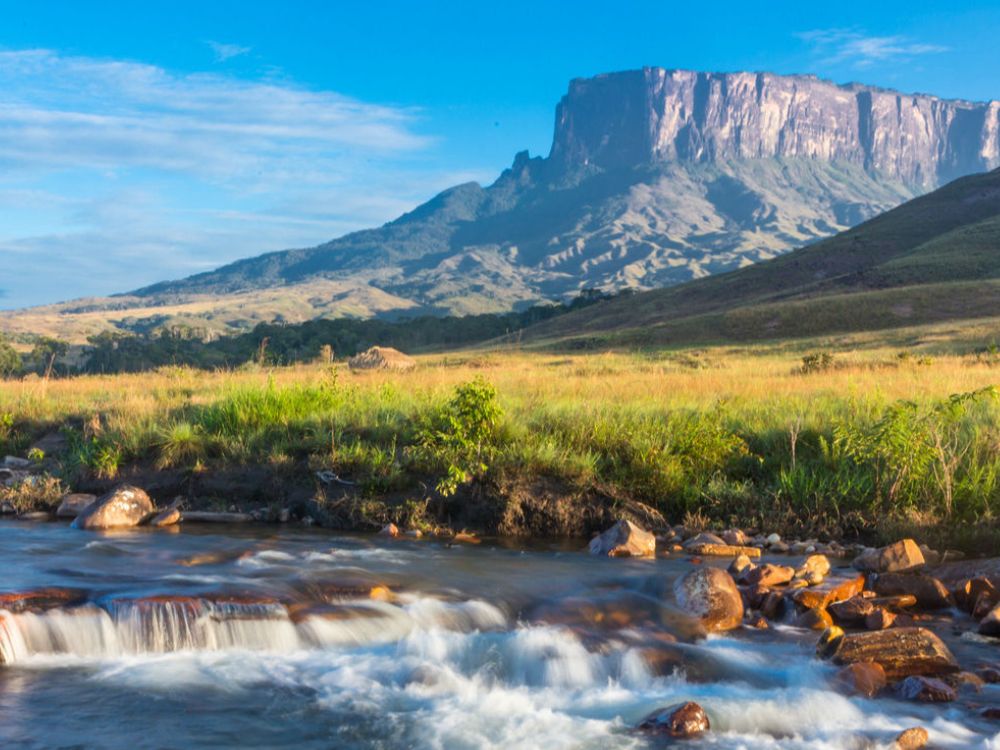
Roraima, the northernmost state of Brazil, offers a unique experience of discovery and adventure. With temperatures ranging from 26 to 37 degrees Celsius, the climate is as welcoming as its population of approximately 634,805 inhabitants.
Covering a vast area of 224,299 square kilometers, Roraima stands out for its immense geographical expanse and low population density, providing vast stretches of untouched landscapes and a sense of freedom for visitors.
Roraima, the northernmost state of Brazil, offers a unique experience of discovery and adventure. With temperatures ranging from 26 to 37 degrees Celsius, the climate is as welcoming as its population of approximately 634,805 inhabitants.
Covering a vast area of 224,299 square kilometers, Roraima stands out for its immense geographical expanse and low population density, providing vast stretches of untouched landscapes and a sense of freedom for visitors.
Roraima’s history is marked by cultural diversity, a result of Portuguese colonization and the influences of the indigenous peoples who originally inhabited the area.
Local traditions reflect this rich heritage, keeping alive the language and customs of the region’s first inhabitants. In various indigenous communities, one can find rituals and celebrations that date back to ancient times, offering a rare and authentic glimpse into Brazil’s original cultures.
Roraima’s cuisine is a true delight, featuring typical dishes like damurida and tambaqui fish stew, which captivate with their flavor and authenticity. Damurida, for instance, is a traditional indigenous dish made with fish or game meat and a variety of local peppers, resulting in a spicy and robust flavor that reflects the soul of the region.
The tambaqui stew pays homage to Roraima’s abundant rivers, using tambaqui, a highly prized freshwater fish, cooked with vegetables and local herbs. Additionally, there’s the paçoca de carne de sol, a dish that mixes shredded dried beef with manioc flour, perfectly illustrating the fusion between indigenous cultures and Portuguese influence.
With beautiful river landscapes, such as those found at Praia Grande and Praia do Caçari, Roraima offers a peaceful and picturesque retreat. These areas are ideal for relaxing, picnicking, and enjoying moments with family or friends, always surrounded by the lush Amazonian nature.
The riverbanks are also perfect for water sports like canoeing and stand-up paddleboarding, providing a unique way to explore the local flora and fauna.
Roraima, the northernmost state of Brazil, offers a unique experience of discovery and adventure. With temperatures ranging from 26 to 37 degrees Celsius, the climate is as welcoming as its population of approximately 634,805 inhabitants.
Covering a vast area of 224,299 square kilometers, Roraima stands out for its immense geographical expanse and low population density, providing vast stretches of untouched landscapes and a sense of freedom for visitors.
Roraima, the northernmost state of Brazil, offers a unique experience of discovery and adventure. With temperatures ranging from 26 to 37 degrees Celsius, the climate is as welcoming as its population of approximately 634,805 inhabitants.
Covering a vast area of 224,299 square kilometers, Roraima stands out for its immense geographical expanse and low population density, providing vast stretches of untouched landscapes and a sense of freedom for visitors.
Roraima’s history is marked by cultural diversity, a result of Portuguese colonization and the influences of the indigenous peoples who originally inhabited the area.
Local traditions reflect this rich heritage, keeping alive the language and customs of the region’s first inhabitants. In various indigenous communities, one can find rituals and celebrations that date back to ancient times, offering a rare and authentic glimpse into Brazil’s original cultures.
Roraima’s cuisine is a true delight, featuring typical dishes like damurida and tambaqui fish stew, which captivate with their flavor and authenticity. Damurida, for instance, is a traditional indigenous dish made with fish or game meat and a variety of local peppers, resulting in a spicy and robust flavor that reflects the soul of the region.
The tambaqui stew pays homage to Roraima’s abundant rivers, using tambaqui, a highly prized freshwater fish, cooked with vegetables and local herbs. Additionally, there’s the paçoca de carne de sol, a dish that mixes shredded dried beef with manioc flour, perfectly illustrating the fusion between indigenous cultures and Portuguese influence.
With beautiful river landscapes, such as those found at Praia Grande and Praia do Caçari, Roraima offers a peaceful and picturesque retreat. These areas are ideal for relaxing, picnicking, and enjoying moments with family or friends, always surrounded by the lush Amazonian nature.
The riverbanks are also perfect for water sports like canoeing and stand-up paddleboarding, providing a unique way to explore the local flora and fauna.

Important cities like the capital Boa Vista serve as the state’s vibrant heart, blending modernity and tradition. Boa Vista is notable for its urban planning inspired by Parisian avenues, with broad streets radiating from the city center, offering an organized and easy-to-navigate structure.
The city exemplifies the harmonious coexistence of progress and cultural respect. In Boa Vista, visitors can explore Anauá Park, one of the largest leisure spaces in the region, hosting cultural events and outdoor concerts, as well as being a great spot for walks and picnics.
Roraima is also a destination filled with natural adventures. Mount Roraima, one of the oldest geological formations on the planet, is a must-see attraction. This tepui, located at the triple border of Brazil, Venezuela, and Guyana, attracts adventurers and trekking enthusiasts from around the world.
Climbing Mount Roraima is a challenging but highly rewarding experience, offering stunning views and the opportunity to explore a unique ecosystem with endemic plants and animals not found anywhere else.
Beyond Mount Roraima, the region is home to other natural wonders like the Viruá National Park, a vast territory of wetlands, forests, and savannas.
This park is a paradise for birdwatchers, with hundreds of bird species recorded, and is also home to various mammals and reptiles. Trails within the park allow visitors to deeply connect with nature, exploring the rich biodiversity of the Amazon.
Roraima is also a place where cultures meet. Indigenous communities like the Yanomami and the Macuxi keep their traditions and ancestral ways of life alive. Visitors interested in cultural tourism can visit these communities and learn about their customs, crafts, and the spiritual relationship they maintain with nature.
This type of interaction not only enriches visitors’ experiences but also promotes sustainable and respectful tourism that values and preserves local cultures.

Another fascinating aspect of Roraima is its geographical location, making the state a gateway to South America. The border with Venezuela and Guyana offers a unique opportunity for those who wish to explore neighboring countries, facilitating trips that combine international destinations with Roraima’s natural and cultural beauties.
The city of Pacaraima, on the border with Venezuela, is an important crossing point and offers a blend of cultural influences from both countries.
Roraima’s economy is diverse, with highlights in agriculture, mining, and commerce. Agricultural production includes crops like rice, corn, manioc, and tropical fruits, which not only supply the local market but are also exported to other regions.
Mining, especially of gold and diamonds, has been a significant activity, though often controversial due to associated environmental and social impacts. However, efforts are being made to promote more sustainable and responsible practices in the sector.
In terms of infrastructure, Roraima has been investing in improvements to attract more tourists and investors. Boa Vista’s international airport facilitates access to the state, while the highways connecting Roraima to other parts of Brazil and neighboring countries are constantly being developed. These investments are essential for economic growth and for enhancing the quality of life for local residents.
In summary, Roraima is a destination that promises not just a trip, but an unforgettable journey through the history, culture, and natural beauty of northern Brazil.
Every corner of the state reveals a new facet of its multifaceted identity, from its majestic landscapes and impressive biodiversity to its rich and welcoming cultural traditions. For adventurers, nature lovers, and those seeking a deeper connection with local culture, Roraima offers an authentic and transformative experience.
Whether exploring the high plateaus of Mount Roraima, relaxing on the tranquil banks of a river, or immersing oneself in the vibrant traditions of indigenous communities, Roraima is an open invitation to exploration and discovery.
